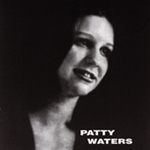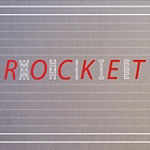Home » Jazz Articles » Album Review » Chuck Loeb: Between 2 Worlds
Chuck Loeb: Between 2 Worlds
Over the years, Loeb has associated with many across the jazz spectrum, including Stan Getz, Jay Beckenstein, Michael Brecker and Victor Bailey. In addition to his solo career, he has been a member of Metro, Steps Ahead and The Fantasy Band. Between 2 Worlds presents Loeb with a jazz trio and a few additional players here and there throughout.
The title came about because the songs were recorded in sessions in both Europe and North America, but it is also symbolic of the bridge between smooth jazz and more adventurous music. The supporting cast includes several major session players along with his wife, Carmen Cuesta, and daughter Lizzy Loeb.
Will Lee plays a fretless bass melody to start "Hiram," a mellow song to honor the late guitarist Hiram Bullock. Though Bullock thought of himself more as a rock musician, he recorded with numerous jazz artists, including Lee. Gerald Veasley provides the main bass line and Cuesta injects an ethereal vocal chant while drummer Dave Weckl and percussionist Barshiri Johnson help underscore Loeb's solo.
The title song again features Cuesta's airy vocal chant, but this time Wolfgang Haffner takes drum duty. Loeb and Cuesta co-wrote the song, based on a chorus she had been practicing; the vocal-guitar combination gives the song a night-on-a-moonlit-beach feel.
"Let's Play" features Loeb, Weckl and Veasley in a high-speed, straightforward jazz mood. After the opening melody and middle break, the song shifts into an ostinato passage, with Loeb and Veasley repeating the same phrase while Weckl steps outside the box and incorporates his entire drum kit.
Loeb, like many smooth jazz artists, normally records albums that are heavy on keyboards, programming and production—elements lacking on Between 2 Worlds that result in a freer, more natural sound. Cuesta and Lizzy Loeb contribute compositionally to some of the original tunes, with Antonio Carlos Jobim and James Taylor Quartet represented by one song each. Among the other artists who appear on the album are Eric Marienthal, Brian Culbertson, Nathan Eklund and David Charles.
Track Listing
Let’s Go; Hiram; Mittens; Between 2 Worlds; Oh No You Didn’t; Let’s Play; So Tinha De Que Ser Com Voce; The Great Hall; Mean Old Man; 360; Early Turns to Late.
Personnel
Chuck Loeb
guitarChuck Loeb: guitar; Carmen Cuesta: vocals (2, 4, 7); Lizzy Loeb: vocals (5); Eric Marienthal: saxophones, flute; Till Bronner: trumpet (3); Nathan Eklund: trumpet (1), trombone (1); Brian Culbertson: trombone solo (1); Pat Bergeson: harmonica (11); Will Lee: bass (1, 3, 5), fretless bass melody (2); Gerald Veasley: bass (2, 6); Dieter Ilg: bass (8-11); Dave Weckl: drums (1-3, 5-7); Wolfgang Haffner: drums (4, 8-11); Bashiri Johnson: percussion (1-3); David Charles: percussion (5, 7, 10, 11).
Album information
Title: Between 2 Worlds | Year Released: 2009 | Record Label: Heads Up International
Tags
PREVIOUS / NEXT
Support All About Jazz
 All About Jazz has been a pillar of jazz since 1995, championing it as an art form and, more importantly, supporting the musicians who make it. Our enduring commitment has made "AAJ" one of the most culturally important websites of its kind, read by hundreds of thousands of fans, musicians and industry figures every month.
All About Jazz has been a pillar of jazz since 1995, championing it as an art form and, more importantly, supporting the musicians who make it. Our enduring commitment has made "AAJ" one of the most culturally important websites of its kind, read by hundreds of thousands of fans, musicians and industry figures every month.





















